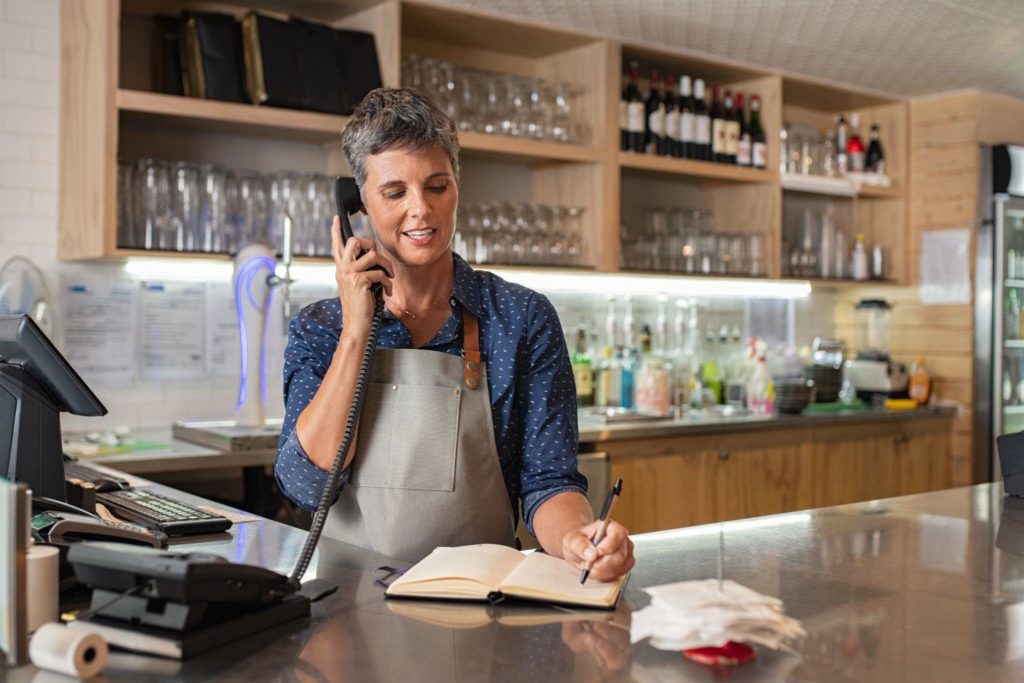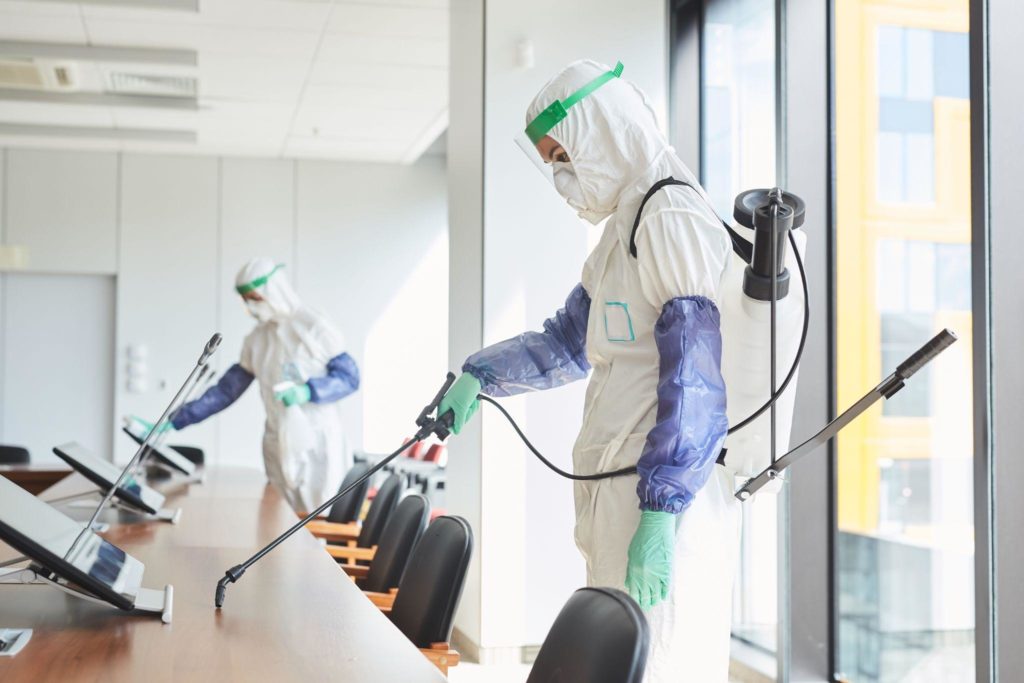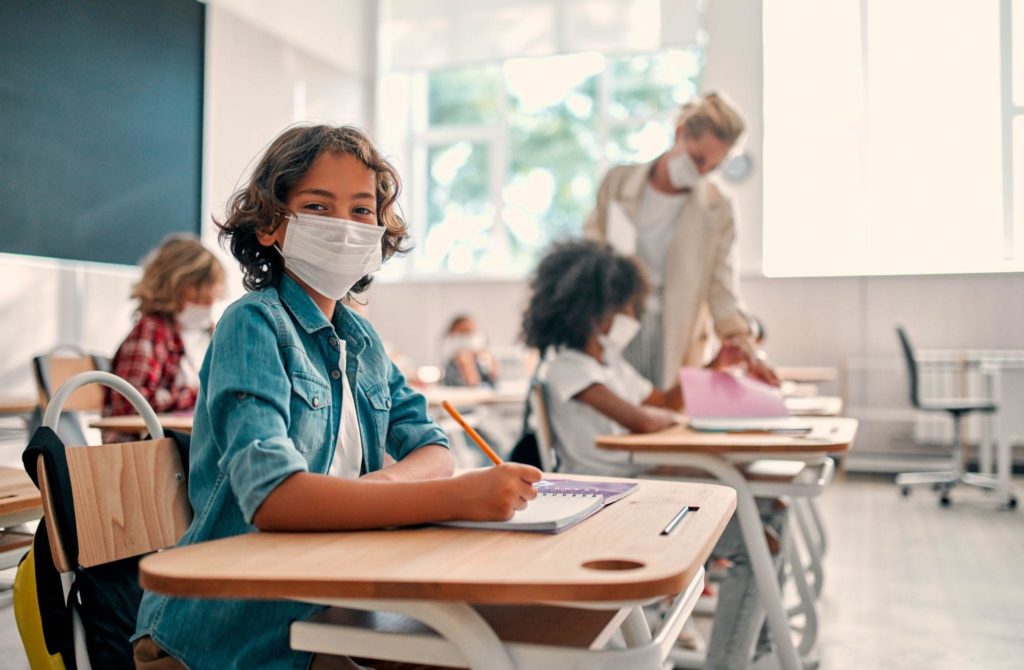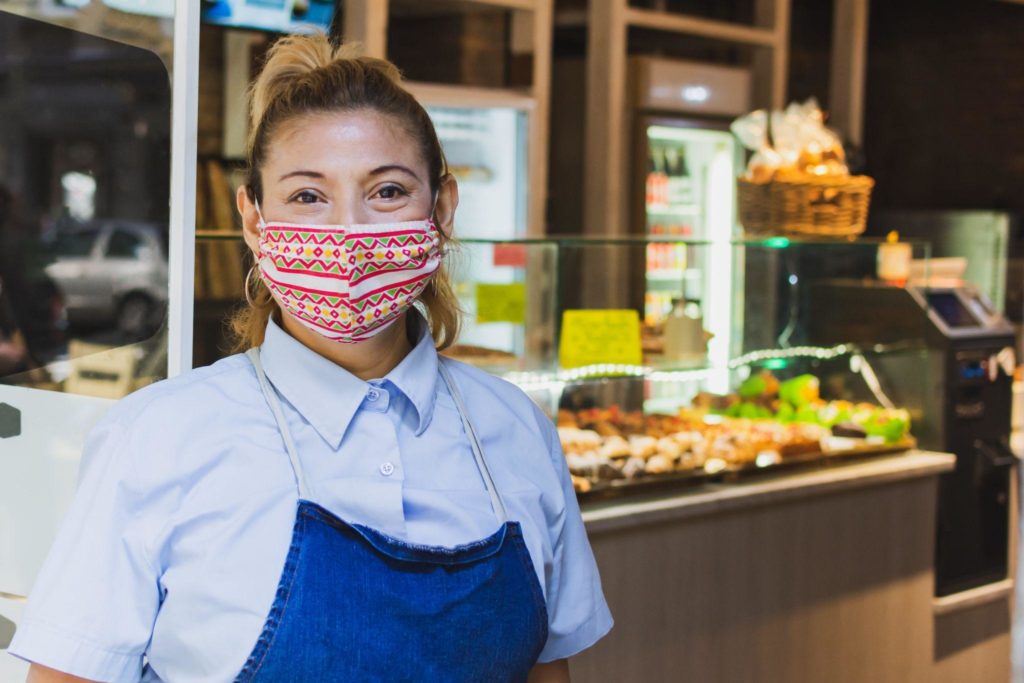Impact of COVID-19 on Small Business Call Volume
During the COVID-19 pandemic, many people calling small businesses have received messages claiming the company is experiencing “unusually high call volume.” What does this really mean? Are there more phone calls or fewer people to answer them? In fact, many call center companies had fewer agents while other facilities had to shut down, as has been reported by the Los Angeles Times.
Call volumes in the medical and travel industry certainly increased during the pandemic. Medical information contact centers experienced high volumes of calls from individuals wanting more information on coronavirus and their symptoms. Airline travelers flooded contact centers about cancellations and refunds when commercial air travel shut down and even when it opened up again. Many people were then simply too afraid to fly.
The impact on the number of calls has varied by industry and even from one company to another. Some small businesses had substantial increases in call volume, saw a dropoff in calls, or experienced an influx of new clients during lockdown. We’ll look at the impact of COVID-19 on different business segments but start with a closer look at call volume.
What Is Call Volume?
Call volume is a term used in the telecommunications industry. It refers to the number of phone calls received over a certain time. These can be to one telephone number, to a specific area, or between two or more cities or locations. Metrics can be reported on a daily basis or compared year-over-year to predict workload and make key staffing and scheduling decisions.
Every business has a certain call-handling capacity. Call volume is measured in Calls Per Second (CPS). Once used to determine how telephone switching systems performed, CPS helps determine how many calls your company can process in a second. There are even formulas for forecasting call volume and predicting short- and long-term trends beyond seasonal variations.
COVID-19 Impact Per Industry/Business Segment
According to GEP, a global supply chain software company, contact centers overall had a 300% increase in call volume in the early days of the pandemic.1 It also found that:
- Average Handle Time increased from 3–6 minutes to 10+ minutes.
- Abandonment Rates were likely to increase from 2–5% to over 10%.
- Higher average queue and hold times were likely to lead to longer average hold times.1
Most contact center agents were forced to work from home at the height of the pandemic. This was a challenge in India and other developing countries that handle a large percentage of calls. AnswerMTI’s agents, however, are all based in the U.S. Artificial intelligence, chatbots, natural language processing, and other automation technologies have been used as first contact solutions. One was the Rapid Response Virtual Agent by Google, which responds to user queries with scripted answers and routes them to live agents when necessary.
The contact center industry has worked quickly to adapt. Yet as we dove deeper into how COVID-19 affected call volume for different types of businesses, we were able to identify these trends:
Health Care
The World Health Organization (WHO) declared COVID-19 a pandemic on March 11, 2020. The pandemic had a notable impact on health care call center volume. Gyant, a virtual assistant developer for the health care industry, partnered with Intermountain Healthcare to develop the COVID-19 Screener and Emergency Response Assistant (COVID-19 SERA). This “chatbot” was used by over 157,000 people in its first two-and-a-half weeks, corresponding with a 30% decrease in call center volume, per a news release by Gyant.2
In a January 2021 journal by the Elsevier Public Health Emergency Collection, it was revealed an epileptologist received an average of 10 calls per day before the pandemic (January 1st through February 29th, 2020) and an average of just one call per day during the event (March 15th through May 15th, 2020). Prior to the pandemic, most phone calls pertained to concerns over medication side effects and breakthrough seizures. Then there was an increase in calls relating to patient concerns about whether epilepsy increased one’s risk associated with COVID-19.3
Event Venues
Event venues generally saw a decrease in call volume as weddings, graduations, and other gatherings were sidelined. Venue closures and concern over the virus led many people to postpone or cancel events, with a substantial drop from January and February to April 2020. The size of downturns varied from one venue to another, but the impact on cancellations extended beyond event venues. They negatively impacted vendors used for weddings, including photographers, caterers, florists, stylists, food service companies, printers, and bridal shops.
Balloon & Flower Vendors
It would make sense that canceled events would cause a decline in balloon and flower sales. However, many flower shop owners and balloon sellers used their online storefronts to cater to customers. A large number of balloon and flower bouquet orders were sent to friends and loved ones remotely, whether to their homes or, in some cases, surprise birthday or graduation parades.
Floral businesses able to continue operating communicated with customers by phone, so there were a high number of calls overall. At the height of the pandemic, there were holidays such as Valentine’s Day, Mother’s Day, and Easter, when flower sales are typically high. One Washington florist reported losing as much as $60,000 in April. It donated much of its inventory, having misted the flowers with disinfectant and forgoing the cellophane wrapping, as coronavirus can live on it for days.4
The flower business is a complex one. It consists of growers, designers, distributors, logistics, and consumers. COVID-19 disrupted a complicated supply chain, and florists had to stay in touch with venders, other businesses, and customers despite fluctuating economic conditions.
Commercial Cleaners
The pandemic has been a busy time for businesses in the medical facility cleaning and sanitizing industry. Call volume surged from February to March. There was nearly equal downtrend in April 2020. It’s believed many establishments scheduled one-time sanitization jobs while lockdown was ongoing. Thereafter, a reduced demand caused a decline in overall call volume.
IT Service & Sales
Our agents saw increased call volume from the IT services sector, as many brick-and-mortar businesses sought ways to switch to a work-from-home model. It turns out not so many business owners are tech savvy. Calls in this segment increased significantly in February and March 2020 while things were more challenging for commercial IT sales, which fell as businesses started closing during prolonged lockdowns. Nonetheless, business IT service calls remained robust into April 2020.
School Safety
Fire safety lines and campus safety hotlines saw a steep drop in calls as schools closed during the initial lockdown and as summer approached. As students fled dorms, emergency lines saw a nearly complete drop in calls. The following statistics provide insights into the impact of COVID-19 on education:
- The National Fire Protection Association reported over 3,800 structure fires in higher-education related properties from 2015 to 2019.5
- Over the second week of March, 2020, nearly 300 U.S. universities suspended in-person learning, canceled on-campus events, and halting school-sponsored travel while implementing digital tools to support remote learning.6
Hair Salons
Barber shops, salons, and spas were shuttered as businesses were forced to close. As non-essential entities, they were unable to cater to clients during prom season, as many prom events were held virtually. Drops in business varied from state to state, as local governments opted to institute mandatory closures of personal care and grooming facilities starting in February 2020, and some didn’t until April. Generally, hair salons saw a sharp drop in the number of calls received in March and April.
Mental Health Counseling
As people had no choice but to stay at home, many were deprived of personal connections. Depression, anxiety, and substance use have been on the rise. Mental health counselors have been busy working with individuals and families.
However, the impact on call volume has varied. In studies, counselors/agencies that offer telehealth appointments saw a rise in inbound call traffic. Those that didn’t provide such services saw a decline.
Resorts & Hotels
For the most part, occupancy rates plummeted during the pandemic, and the travel industry has taken a huge hit. According to the American Hotel & Lodging Association, around three-quarters of hotels will have to lay off more workers or may not even survive without federal help.7
Not all hotels and resorts saw the same results. Many people, bored at home and with the means to travel, booked trips. While international vacations declined, domestic travel to areas where vacationers could find an escape on a beach or enjoy water activities increased. Overall, the hotel industry saw fewer phone calls into the spring of 2020.
Veterinary Medicine
Pet fostering and adoption rates rose during the pandemic. Not only has this resulted in an increased number of calls for pet adoption companies and veterinary practices, but many animal shelters found themselves empty of dogs and cats for the first time in a while. It turns out many people sought solace in the joy and unconditional love only a pet can bring, especially during a time of pain and hardship.
Food & Beverage
The impact of COVID-19 on the food and beverage industry has varied. Dairy farmers were among the hardest hit, as the supply chain crumbled and supplies of milk had to be dumped. In this segment, it’s crucial to guarantee freshness, but delays in delivery made it impossible to. Call volumes for dairy farmers declined in March 2020 and April 2020.
However, food and beverage companies able to adapt saw an uptick in business and phone calls. In the “new normal,” restaurants offering curbside service, distilleries that switched to making hand sanitizer, and bars that started online alcohol sales saw substantial increases as time went by. Pretty much any businesses able to ship directly to customers were at a clear advantage. Non-contact service has certainly become the “new norm.”
Traffic Incidents & Vehicle Services
With fewer people on the roads during lockdown, calls to driving and traffic incident hotlines decreased. The University of California, Davis revealed in a study that about 1,000 collisions per day occurred before stay-at-home orders were issued. Afterward, that number dropped to about 500 per day.
A decrease in traffic volume in many cities was reported as well. As online alcohol sales grew, fewer people were leaving home to drink, meaning fewer drunk drivers were on the roads. A company that monitors breathalyzers installed in vehicles saw a decline in call volume. Fewer accidents also meant a drop in the number of calls to auto body repair companies.
Stock Brokerages
The COVID-19 crisis had an impact on the U.S. and global markets. During the week of February 24, the S&P 500 fell nearly 10%, and some brokerages saw call volumes increase by double digit percentages. The crisis impacted different parts of the economy over time, and contact center phone calls continued to rise from customers trying to manage their stock portfolios.
Throughout the pandemic, banks and brokerages saw contact center calls increase as clients worked to manage their own finances. Online brokerages saw an increase in account openings as well. So, there was an influx of phone calls from those learning online trading platforms and not only clients who needed assistance with trades, but information to help educate them about investing.
TD Bank hired 60 representatives to follow up with new account holders, while TD Direct Investing added 100 call center representatives as of January 2021 with plans to hire 100 more.8
Let AnswerMTI Manage Your Call Volume
At AnswerMTI, our team understands the question “What is call volume?” and our live agents are ready to take calls on behalf of your business, no matter where in the country you’re located. We reach companies in the west, southwest, midwest, northeast, and southeast. Our services are available 24/7.
Therefore, a caller can reach your small business after hours, on weekends, or during a holiday. We work with businesses of all sizes and with all budgets. Our team can find or customize a pricing plan based on your typical call volume, call times, and other factors.
In addition to a flexible plan that meets your needs, improves your reputation, and saves money, our answering services offer the following advantages:
- Highly trained, 100% U.S.-based answering service professionals
- A one-week trial to see how our service can work for you
- Call-screening, appointment-setting, and order-taking services
- Complete virtual receptionist services that provide a voice for your company
- 24-hour call forwarding or support for call overflow
- Bilingual agents so your business can reach more customers
- Call patching for important calls to be forwarded to the right people
- Emergency answering (including doctor emergency call answering, HVAC support, and disaster recovery help)
- Unlimited scripting; our agents are trained in all aspects of your industry to help callers in many different situations
If your business has experienced fluctuations in call volume due to COVID-19, like the types mentioned above, or it requires any level of call support, contact AnswerMTI at 844-798-1027 today.
Source:
- https://www.gep.com/blog/mind/impact-of-covid-19-on-contact-centers-and-measures-taken
- https://ehealthcarestrategy.com/chatbots-helped-one-system-reduce-covid-call-volume
- https://www.ncbi.nlm.nih.gov/pmc/articles/PMC7826098/
- https://www.observer-reporter.com/news/localnews/where-have-all-the-flowers-gone-florists-suffering-during-covid-19-pandemic/article_1115e86a-7426-11ea-9979-9392d62cd639.html
- https://www.nfpa.org/education-and-research/building-and-life-safety/campus-and-dorm-fires?l=108
- https://edscoop.com/universities-closed-due-coronavirus-2020/
- https://www.ahla.com/covid-19s-impact-hotel-industry
- https://www.theglobeandmail.com/business/article-brokerage-firms-rush-to-hire-staff-to-address-hours-long-waits-on/























